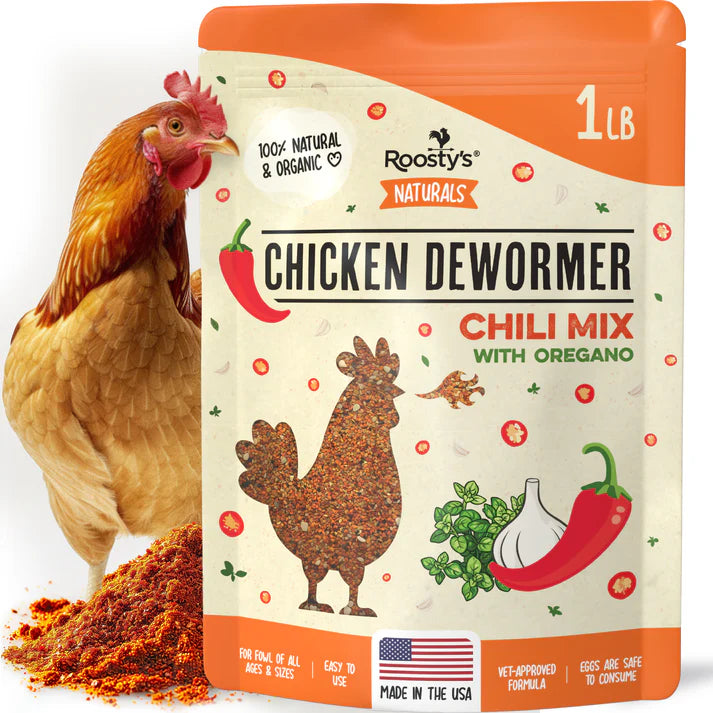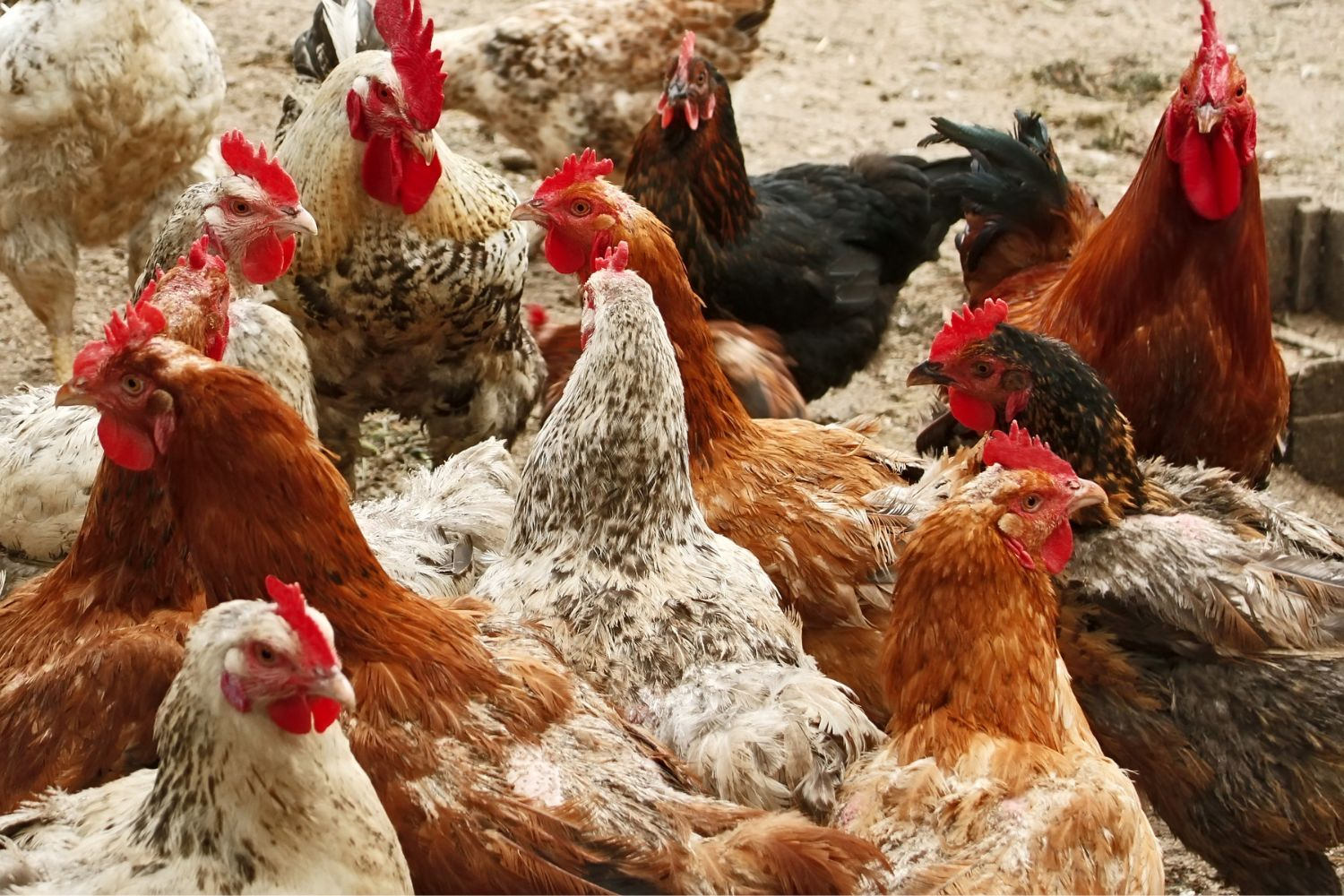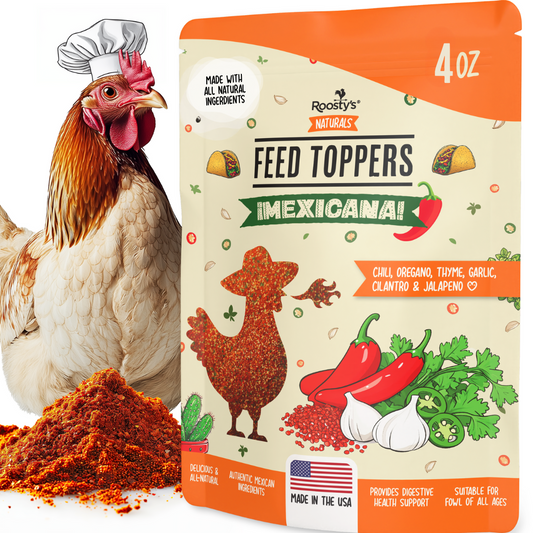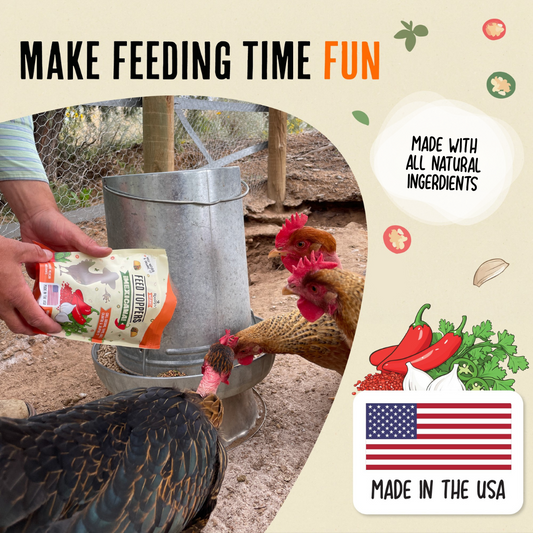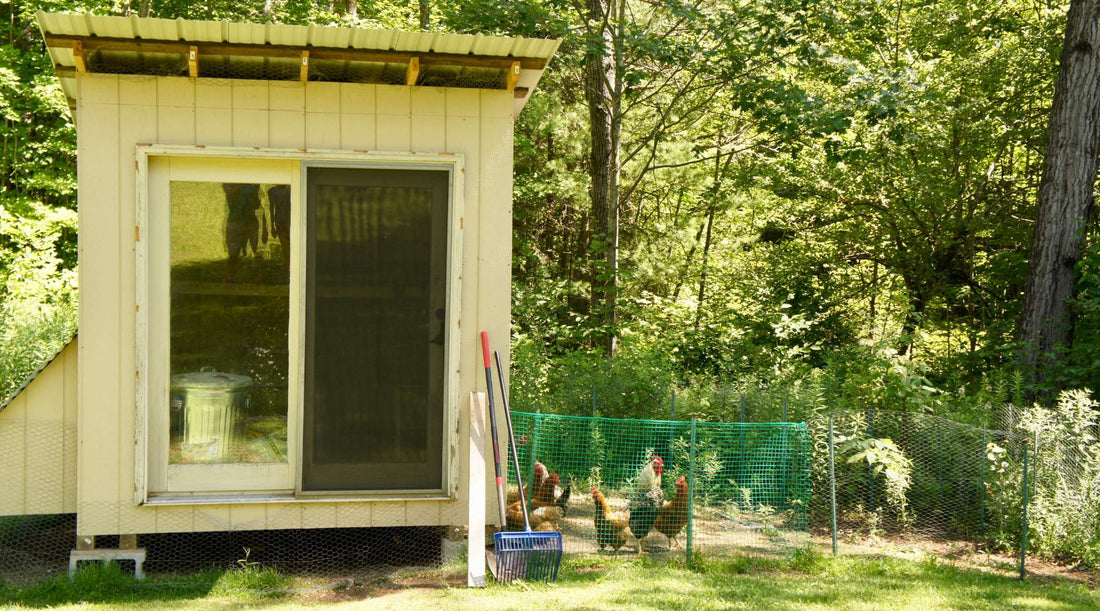
How Big Should a Chicken Coop Be? Essential Tips for Sizing Your Coop
 there, fellow chicken enthusiasts!
there, fellow chicken enthusiasts!
Congratulations on taking the plunge into the world of backyard chicken farming.
As you embark on this exciting journey, you are about to unlock the door to a realm where happy hens lay fresh eggs every day. So, naturally, you may be wondering to yourself.
How big should my chicken coop be?
Your chicken coop stands as a testament to your devotion as a chicken farmer.
Seasoned coop connoisseurs would be first to point out the importance of coop size when it comes to poultry-keeping. Does size matter with chicken coop? The answer is yes.
How big your chicken coop is will affect your results as a chicken farmer. After all, a well-designed chicken coop is a lot more than a simple shelter.
So, if you are still googling “how big of a chicken coop do I need?”, the answer is: big enough to fosters the health and happiness of your hens and roosters. The coop is the habitat where they can nest, perch, and roam safely.
At Roosty’s, we are a dedicated chicken farming expert, passionate about educating you.
With years of experience, we’ve had the pleasure of witnessing how much difference the right chicken coop size can make.
We help you bring your chicken game to the next level by explaining:
- The elements to consider to define how big chicken coop projects must be
- How to build a chicken coop for 10 or more chicken
- The optimal chicken coop dimensions for all farming purposes
- The step-by-step guide to building the perfectly sized chicken coop
If you are ready to start keeping chicken in your backyard, read on to find out how to design a coop that will keep them safe, happy, and healthy. Buckle up, your chicken adventure is about to take flight!
How Big Should a Chicken Coop Be?
How big does a chicken coop need to be? There is no such thing as one size fits all when it comes to chicken keeping.
Here, our Roosty’s experts explore the dimensions, considerations and reasons for the right sized chicken coop.
Ideal Chicken Coop Size
First of all, there is more than raw square footage when you set on building a chicken coop.
How big is a chicken coop depends on different factors:
- How many chickens are you planning to keep?
- How much space does their natural behavior need?
- Which chicken breeds do you keep?
- Do you want to expand your flock in the long term?
- What kind of chicken coop do you want to build?
Number of Chickens
How many chickens you plan to keep is an important aspect in the size of your coop.
As a rule of thumb, each chicken needs sufficient room to perch, nest, scratch, and move around safely without feeling cramped.
We typically recommend allocating around 3 to 4 square feet of interior space per chicken.
Chicken Behaviors
Chickens are naturally curious and active creatures, so their behavior needs sufficient space.
Your chicken coop should be big enough to allow them to engage in day-to-day activities comfortably:
- Pecking
- Scratching
- Dust bathing
- Roosting
- Perching
- Etc.
Understanding Chicken Breeds
This may come as a surprise, but different chicken breeds have different sizes and temperaments.
In other words, not all chicken breeds have the same spatial needs. Larger breeds need a bigger chicken coop, while smaller breeds can be content in a smaller coop.
So, you want to consider the specific breeds you’re raising and their needs.
Future Expansion
Be realistic. If you are planning to expand your chicken flock in the future, it makes sense to build a chicken coop that is designed to accommodate new additions.
This will also save you the hassle of having to rebuild your chicken coop a few months down the line.
Types of Chicken Coops
There are two essential chicken coops: Enclosed chicken coops and open range chicken coops.
Enclosed chicken coops can provide a safe environment fully protected from predators.
On the other hand, open space coops allow chickens to roam free, which could expose them to predators outside the coop.
Both have pros and cons, but their main difference lies in how much room the chicken you keep will need in each coop.
Why Do Chickens Need Space?

Ah, the age-old mystery: Why do chicken need extra space in their coop? The answer is rooted in their instincts and behaviors.
So when your chicken coop is big enough, it essentially translates to healthier, happier, and more productive chickens.
As explained, chickens are inquisitive and curious. They need space to explore, scratch the ground, and more. Natural chicken behaviors require space to maintain their overall well-being.
As tempting as it can be to save space by overcrowding a chicken coop, this will inevitably lead to aggressive and stressed out chickens.
You need adequate room in the chicken coop to reduce the risks of pecking disputes and bullying.
Hens need a comfortable and peaceful environment to lay their eggs and nest. Anxious hens in a cramped environment may not lay as many eggs as they would otherwise.
Chickens that are kept in a far too tight chicken coop can develop health issues. A properly sized chicken coop guarantees adequate air circulation and humidity.
Chicken Breeds and Chicken Coop Size
We’ve mentioned above that different chicken breeds require different coop sizes. Let’s dive a little further into the unique differences here:
Large Chicken Breeds
Heftier breeds, like Brahmas and Orpingtons, need more room than other breeds. They need space to stretch their legs and flap their wings comfortably.
Bantams and Other Smaller Breeds
Smaller breeds, like Seramas or Silkies, do well in smaller chicken coops. So, if you have limited space in your backyard, you want to focus your attention on those breeds.
An important reminder, though: While they need slightly less space, they still require plenty of room to maintain everyday activities.
Dual-Purpose Breeds
Some breeds serve a dual purpose: both meat and egg production, such as Plymouth Rocks and Rhode Island Reds.
So when it comes to figuring out how big your chicken coop needs to be, you want to aim for the middle range.
Expanding your chicken flock
If you are planning to keep more chickens in the near future, it’s a good idea to build your chicken coop for the number of chickens you have in mind.
You may want to use this chicken coop size calculator for guidance.
What Size Chicken Coop for 10 Chickens or More?
If you have decided to expand your chicken flock in the future, you may wonder how big you should build your chicken coop. It turns out that you shouldn’t size up each time you acquire a new chicken.
How big your chicken coop needs to be depends on the size of your flock, and not on the individual number of chickens you keep.
Unsure what this means? We explain. Think of flock sizes like nesting boxes; there is a perfect fit for every situation.
Small Flock: How Big of a Chicken Coop for 10 Chickens or Less?
A small flock typically ranges from 2 to chickens. It is a great starting point for newcomers to chicken farming or for those who have limited space in their backyard.
A small flock strikes a happy balance between manageable care and fun interactions with your chickens.
If you are starting with a modest bunch of 10 chickens or fewer. A cozy coop ranging from 30 to 50 square feet is the ticket to happy hens.
Medium Flock: Chicken Coop Size for 12 Chickens and more
As a rule of thumb, flocks between 11 and 30 chickens are the medium range. This is best suited to experienced chicken farmers.
It is still manageable for backyard enthusiasts but a medium chicken flock can demand a lot of time.
So, if chicken keeping is a hobby aside from your day-to-day job, you may feel a little overwhelmed.
Generally the chicken coop size for 12 chickens or more up to 30 is around 50 to 100 square feet. This will provide ample room for your clucking companions.
Large Flock: How Big Does a Chicken Coop Need to Be For 30+ Chickens?
Lastly, flocks over 31 chickens or more are often part of a large scale production or business.
With large flocks, chicken farming becomes a full-time business that requires plenty of space. You may want to divide your flock into multiple chicken coops to make it more manageable.
For comparison, if you have a flock of 40 chickens, your chicken coop would need to be 100 to 160 square feet.
Important Considerations about Chicken Coops
If you chickens have access to an open area during the day, such as open-range chickens who can roam and explore outside of the chicken coop, the coop can be much smaller.
Free-range chickens use the chicken coop only for roosting and laying. They are free to run and explore outside the coop where they can maintain their everyday behaviors and activities.
In an enclosed chicken coup, you need to include space for chicken for dust bath, scratching, and exploring inside the enclosure.
Optimal Chicken Coop Dimensions
Now that we’ve cracked the code on flock sizes and chicken coop considerations, it’s time to explore the dimensions of the physical chicken coop itself.
How big should a chicken coop be to remain functional, comfortable, and manageable? The question addresses different aspect of a chicken coop:
- The size difference between enclosed and free range chicken coops
- The nesting and roosting space
- The space for food and water inside the chicken coop
- Vertical space for your chickens
Balancing Indoor and Outdoor Space in Enclosed and Free Range Chicken Coops
How big should a chicken coop be? In a free range chicken coop, each chicken will need around 2.5 to 4 square feet inside the coop.
The size of your breed and their temperament will determine which side of the scale you should aim for. As we’ve said before, smaller breeds in a smaller flock will need less space.
The chickens will have access to a larger run outside the coop.
If you prefer an enclosed chicken coop, you will need to make sure each chicken has enough space both inside and outside the coop within the enclosure.
The total space will need to be around 5 to 10 square feet per chicken. Here again, this will depend on the size of the breed, their temperament, and how much ventilation the enclosure needs.
There needs to be sufficient room for nesting, roosting, exploring, and also feeding and water stations within the enclosed coop.
How Much Room Does a Chicken Need in a Coop for Roosting and Nesting?
A harmonious coop embraces the natural behaviors of your chickens, so they can have the space they need for nesting and roosting comfortably.
Nesting boxes are important. They provide a private and safe sanctuary where hens can lay their eggs.
As a rule of thumb, a nesting box should need approximately 1 square foot of space. You can accommodate up to 4 chickens per box, depending on the size of the breed.
Chickens typically prefer dark and snug nesting boxes.
Roosting, on the other hand, is when chickens perch on a roosting bar to sleep. Ideally, each chicken should have around 8 to 10 inches of roosting space, so they don’t feel cramped.
The ideal chicken coop will need roosting bars at different heights.
This will reflect the pecking order between chickens and avoid conflicts! The lowest roosting bars need to be around 2 to 3 feet off the ground.
Making Space for Food and Drinking Stations in the Chicken Coop
Whether you opt for an enclosed chicken coop or for a free range version, you want to have a designated space for your chicken to drink and eat in the chicken coop or around.
To prevent overcrowding and stress, you need to allocate around 1 linear foot of feeder or waterer space for no more than 4 to 6 chickens.
In an enclosed chicken coop, you want to add the space needed for these stations to the chicken coop dimensions.
In an open range chicken coop where birds have access to a bigger run, the feeding stations can be placed next to the coop.
Position these near the coop entrance so they are easy to access, for refill and cleaning.
How big does a chicken coop need to be vertically?
Once you have determined the square footage your chickens need to be healthy, happy, and productive, you also need to include the vertical dimension to your calculations.
There are no clear instructions as to how high a chicken coop must be. But there is some important guidance:
- The minimum height inside the chicken coop must ensure sufficient access for cleaning, maintenance, and egg collection if you are keeping chickens for eggs.
- The height should also include plenty of roosting space for your chickens.
- Higher chicken coops are better for proper ventilation, and they reduce heart buildup in summer.
Ideally, you want to aim for a minimum height of 6 to 8 feet at the tallest point for a small chicken coop.
Creating the Perfect Chicken Coop

If you are completely new to keeping chickens, you want to start with a simple and manageable chicken coop for a small number.
How to Build a Chicken Coop for 2 Adult Chickens
Let’s start with the basics, crafting a chicken coop for 2 to 3 chickens as you approach chicken farming.
This is a very small flock. Most people recommend starting with at least 3 chickens.
For two chickens, the ideal chicken coop size is around 10 to 15 square feet, which still provides plenty of room for nesting, roosting, and feeding.
It is a great exercise for new chicken keepers.
You can seize the opportunity to get familiar with designing a nesting space with a single nesting box, and a roosting space with a roosting bar that spans the width of the coop.
It is easy to add further roosting bars and nesting boxes if you plan to acquire another couple of chickens.
Where to Build your Chicken Coop
Choosing the right location for a chicken coop is important for the safety and health of the chickens. So, you want a spot that has sufficient sunlight and shade while avoiding extreme temperatures.
You also need a location that is easily accessible for maintenance. But at the same time, you want to ensure that predators can be kept at bay!
How Big Should a Chicken Coop Be for Maintenance?
The last consideration when it comes to finding the right size for your chicken coop is incorporating functional features that make it easy to maintain.
For example, you can look for removable trays or sliding floors, which are easy to clean.
Keep nesting boxes easily accessible through hinged doors and other strategic positioning.
You want to be able to collect eggs easily. This will save you time and effort in the long run.
Last but not least, you may need to consider storage solutions in or around the chicken coop for additional feed, bedding and tools. It’s always a good idea to be prepared and organized when keeping chickens!
Your chicken coop must be big enough for you to be able to manage your chicken easily.
In conclusion, there is no such thing as only one size when it comes to chicken coops. How big is a chicken coop depends on how many chickens you want to keep:
- A small flock of up to 10 chickens needs around 50 square feet.
- A medium flock of 11 to 30 chickens needs between 50 and 100 square feet.
- A large flock of over 30 chickens will need over 100 square feet.
This is the space necessary for chickens to move stress-free and engage in natural behaviors.
However, you also need to consider the temperaments and the breed of your chickens. Indeed, larger breeds will need bigger chicken coops, for example.
Additionally, enclosed chickens need a large chicken coop as they do not have access to a big run like free range chickens.
The bottom line, when preparing your chicken coop you need to plan carefully for the well-being of your chickens, which needs to include:
- Ease of management
- Vertical space needs
- Comfort and functionality
- Roomy and ventilated living environment
With these insights in mind, your chickens are poised to thrive in the chicken coop! Feel free to explore our range to find out how to elevate your chicken coop.
